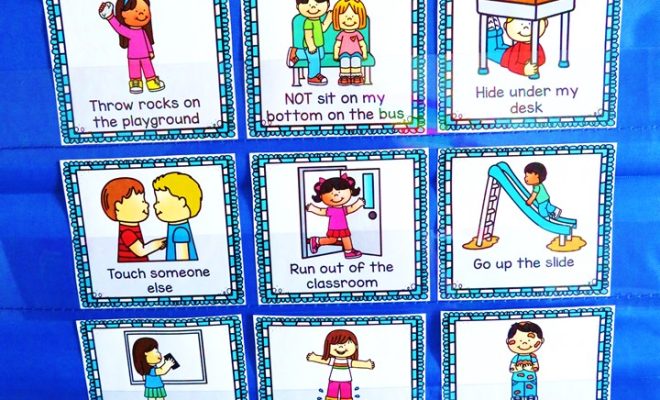The real reason more women don’t code

Karin Verspoor, University of Melbourne
I menstruate and I code. I share this perhaps shocking personal information in the interest of full disclosure, and in solidarity with a new satirical campaign from Girls Who Code.
The campaign proposes a simple explanation for the low numbers of women in tech: that our hormonal cycles interfere with our ability to code.
Other explanations offered up in the campaign include that women can’t code because their boobs get in the way or their long eyelashes make it hard to see the screen.
These explanations are obviously ridiculous and therein lies the point. For example, if women can’t code because they menstruate, then there isn’t much we can do.
After all, menstruating is part of our basic female biology. If it prevents us from concentrating, or thinking rationally, or coding … what hope do we have?
According to the Australian Computer Society’s recent figures, only 28% of all ICT jobs are held by women in Australia. The proportion is even lower for specifically technical roles in ICT.
So there is certainly a basis for wondering whether there is a fundamental reason that women are so underrepresented in IT and computing roles.
But I’m not convinced that the latest campaign from Girls Who Code is asking the right question. “Why can’t girls code?” is a question that starts from the assumption “girls can’t code”. Is this really the prevailing attitude?
Boys v girls
There is, certainly, evidence that boys favour other boys when estimating the performance of their peers in science class.
There is also evidence specifically from the open-source software community that there is bias against accepting code produced by women, despite the overall high quality of their contributions.
Anecdotally, most technical women can share a story of a situation where their work wasn’t taken seriously.
Dr Maria Milosavljevic, national manager innovation & technology and chief information officer at the Australian Transaction Reports and Analysis Centre (AUSTRAC), told me how when she was the only girl in a year 12 computer science class, every boy in the class offered to “help” her with her assignments because they assumed she would need their help.
The implication seems to be that if boys don’t accept that girls can code, then girls can’t code. To me, that’s horribly paternalistic.
Worse yet is the idea that female biology is not suited to coding, an idea that was recently floated (seriously, I fear) citing a 1999 study of 15 people that identified brain differences between men and women.
Surely, there are biological differences between men and women. Periods, brain structure and so on must exclusively determine what women enjoy doing and what we are good at. Right?!
Girls can code
Let’s start from the default assumption that girls can, in fact, code. Nothing in our biology prevents us from being able to learn how to code.
There are plenty of examples that this is the case – after all, the proportion of women in technical roles is not 0%. And there have been some very high-profile female computer scientists. They include: arguably the first computer programmer, Ada Lovelace (1815-1852); the developer of the early COBOL programming language, Grace Hopper; her syster’s keeper Anita Borg; and Google’s first female engineer, now Yahoo’s CEO, Marissa Mayer.
Here in Australia, Kay Thorne was one of the early programmers of the CSIRAC computer nearly 60 years ago.
So, I think a better question is: “Why don’t (most) girls code?”
This is a question that has been explored many times, and even one that I have written about previously.
It is generally seen as a pipeline problem, with the challenge being getting girls interested in coding. The solutions proposed involve developing engaging opportunities for learning and creating with tech, demystifying coding and boosting confidence, and highlighting female role models.
Girls Who Code, Code Like a Girl, Go Girl, Go for IT and Tech Girls are Superheros are all organisations working to create these opportunities.
The truth behind the employment numbers, however, is more complex than that pipeline.
While we know that enrolments of females in ICT courses at tertiary level lag behind males, we also know from research done at Harvard that even if women enter employment in ICT, they don’t always stay there.
Beating the ‘brogrammer’ culture
There have been accusations of a “brogrammer” culture in tech that is hostile to women.
Microsoft got into trouble earlier this year for organising a party at a developer event featuring half-naked dancing women, highlighting that even companies that have worked to support women in tech still lose their way sometimes.
Which brings us full circle back to our biology and the idea that girls can’t code. Yes, women are different from men. Yes, women certainly can code.
On the other hand, women don’t want to face sexism or misogyny in the workplace, behaviour that is driven primarily by their biology. If girls are getting the idea that they can’t code simply because they are girls, then it’s no wonder they don’t see coding as a viable career path.
So maybe they don’t code because someone makes them feel that they can’t.
The Girls Who Code campaign oversimplifies a complex problem, and it delivers a message with nuances that may be lost on the people who need most to understand them.
But it has provoked a question about the connection between biology and cultural attitudes towards women in tech that is worth considering. Period!
![]()
Karin Verspoor, Associate Professor, Department of Computing and Information Systems, University of Melbourne
This article was originally published on The Conversation. Read the original article.





